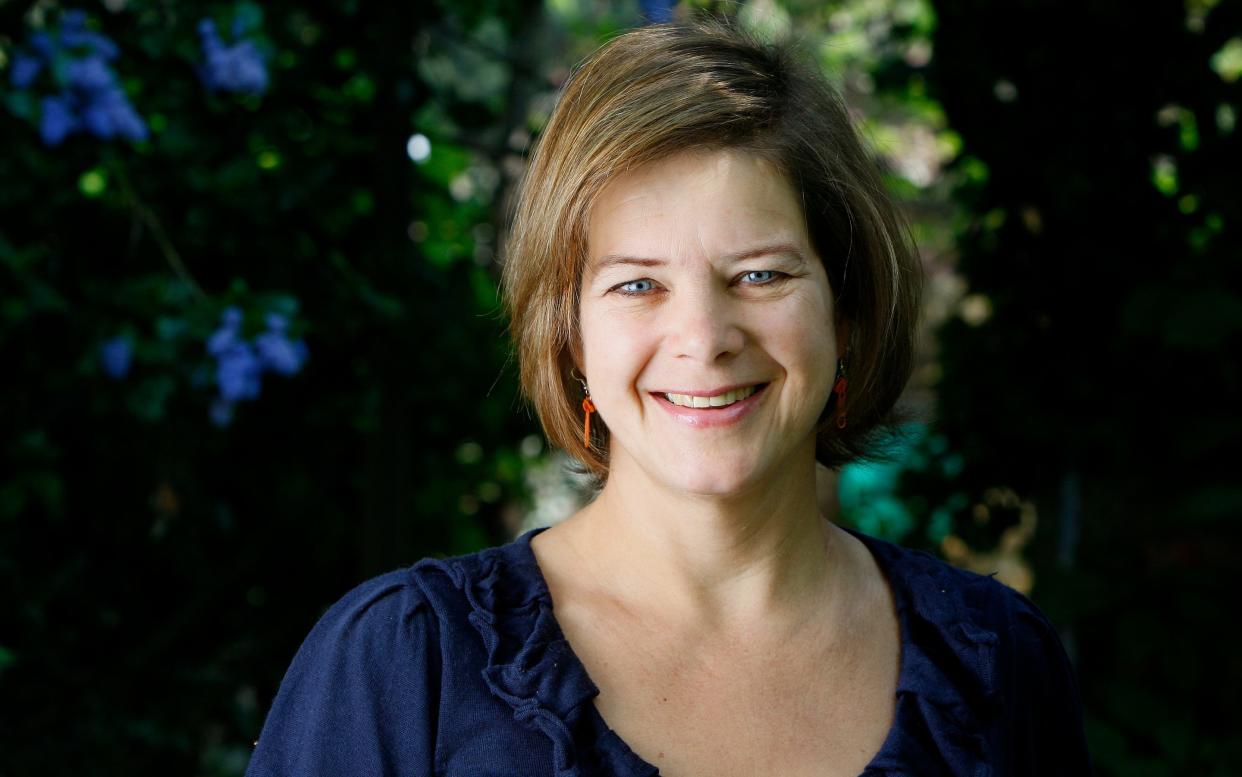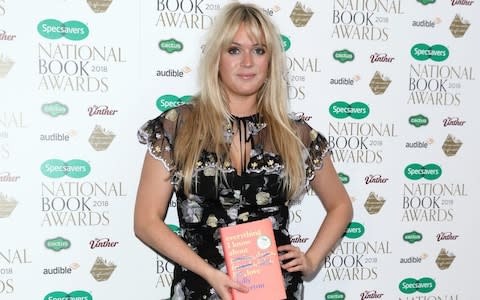Calling all young women writers: Enter the Telegraph's Cassandra Jardine Memorial Prize

Last November, Dolly Alderton won a National Book Award for her bestselling memoir Everything I know About Love, beating off stiff competition from the likes of Benjamin Zephaniah, Sue Perkins and Lily Allen.
But before Alderton became the star she is today, she was a runner-up in the inaugural Cassandra Jardine Memorial Prize.
“Coming third place in the prize was, more than anything, the most incredible confidence boost,” says Alderton now, as she recalls what it was like to discover the judges had selected her piece, a love letter to Desert Island Discs.
“Especially during a time when I desperately wanted to be a freelance writer, but had to juggle it with a full-time day job. Eighteen months after I'd received the prize, I became a full-time freelance writer and I think the boost the prize gave me had a huge part to play in that.”
It would thrill Cassandra, a talented Telegraph journalist who was a huge supporter of young female writers. For the 23 years that Cassandra Jardine worked at The Telegraph, she was the lynchpin of the features desk; the woman to whom editors turned to to transform their pig’s ears into silk purses and her fellow writers would turn to for sage advice on everything from culinary conundrums to relationship troubles.

Jardine could fire off two articles in a day when others struggled to get through one, and she would do all this having first got up at 5am to buy fresh ingredients for dinner from New Covent Garden market and pack her five children off to school.
She was a whirling dervish, a firecracker, a mother and journalist and campaigner who would occasionally wash her hair in the bathroom sink at work. To this day, as I wrestle with a tricky turn of phrase (or toddler), I still catch myself wondering what Cass would do, and more over, how she did it.
“Please skip this paragraph if domesticity bores you,” she wrote once, “but my morning routine is: shop, empty dishwasher and washing machine; hang up washing; put urgent stuff in dryer. Cook breakfast, feed pets, pack lunches, get something from freezer for dinner. Shout: 'You’re late,' jump in car, chase school bus. Fill dishwasher, wipe surfaces, empty compost bucket, thank my husband for walking the dog, argue with child over forgotten PE kit. Hunt for shoes, do second school run, replace nightie with vaguely clean outfit. Rush to work.”
In the office the sound of her fingers hitting the keyboard was like artillery fire, pieces written masterly in between phone calls fielded from children stranded in Morocco without money. Cass had the ability to create calm out of absolute chaos, which is why she was such a fine journalist, and an award-winning one at that.
She wrote two books on parenting. She was brilliant at juggling things. A colleague noted that at any one time on her desk you could find: “a rolled bathing costume in a towel, packets of green tea, toothpaste, two changes of trainers, a lot of fruit, letters from strangers asking or offering advice to this person with whom they felt so strong a connection.”

Even when Jardine was diagnosed with lung cancer in the summer of 2010, she seemed cheery, defiant. That winter she would speak at The Telegraph’s Christmas service for half an hour, with no notes, about the three charities she had worked so hard choosing for our annual festive appeal.
The pieces she wrote about her condition were poignant in their lack of self pity. Hospital was “a bore”, the drain in her lung “a nuisance” that spoiled her dress. “Some people’s straight hair grows back curly after chemotherapy,” she wrote at one point. “I find that my backhand has improved.”
After her death in May 2012, at the young age of 57, her friend Polly Samson recalled that “there was no end, it seemed to me, to her energy as well as her kindness. I remember once she came home from work, mildly irritated that she’d forgotten to defrost the shoulder of lamb for the 16 people who were coming to supper that night. Later, as we were clearing up, she said: “Oh, perhaps we should leave this for now. You need to get to bed and I’d better read through a few cuts before my interview tomorrow.”
The interview was with Princess Anne.”
In 2013, together with Cass’s husband, the actor William Chubb, the Telegraph launched the Cassandra Jardine Memorial Prize. Open to women aged between 18 and 25, it sought creativity and potential in an original feature article. It seemed a fitting way to honour a woman who helped so many other members of her gender as they started out in journalism.

Since its inception, its winners have included Alderton, as well as a nurse who wrote about frantically trying to save a stranger’s life, and a student who shared memories of a childhood visit to Syria. You can also read the entries from last year's winner here and two runners-up here and here.
Cass wanted more than anything for young women to have the chance to be heard. This is a rare opening in a highly competitive industry, and one worth going for. So if you fulfil the entry criteria (messy desk not necessary, though appreciated), the floor is yours.
Over to you young women of Britain. We look forward to reading your entries.
Entry criteria for the Cassandra Jardine Memorial Prize
Open to women aged 18 to 25.
Entrants should submit a feature article of between 1,500 and 2,000 words on any subject of their choice – the article might be an interview, a piece of commentary, serious or light, or an investigation.
Judges will be looking for evidence of the writer’s intelligence, personality and prose style – the qualities that marked out Cassandra Jardine from the start of her career.
The winner, to be announced before the end of February 2019, will receive £1,000 and there will be two runners-up prizes of £300 each. The judges will include Telegraph staff and Cassandra’s husband, William Chubb.
Please send your entry as an email or a Word attachment (please do not include any photographs or other attachments).
Entries should be sent before midnight on 28th January 2019 to cassandrajardineprize@ telegraph.co.uk with your name in the subject field.
For full terms and conditions, please email cassandrajardineprize@telegraph.co.uk with 'terms request' in the subject field.


